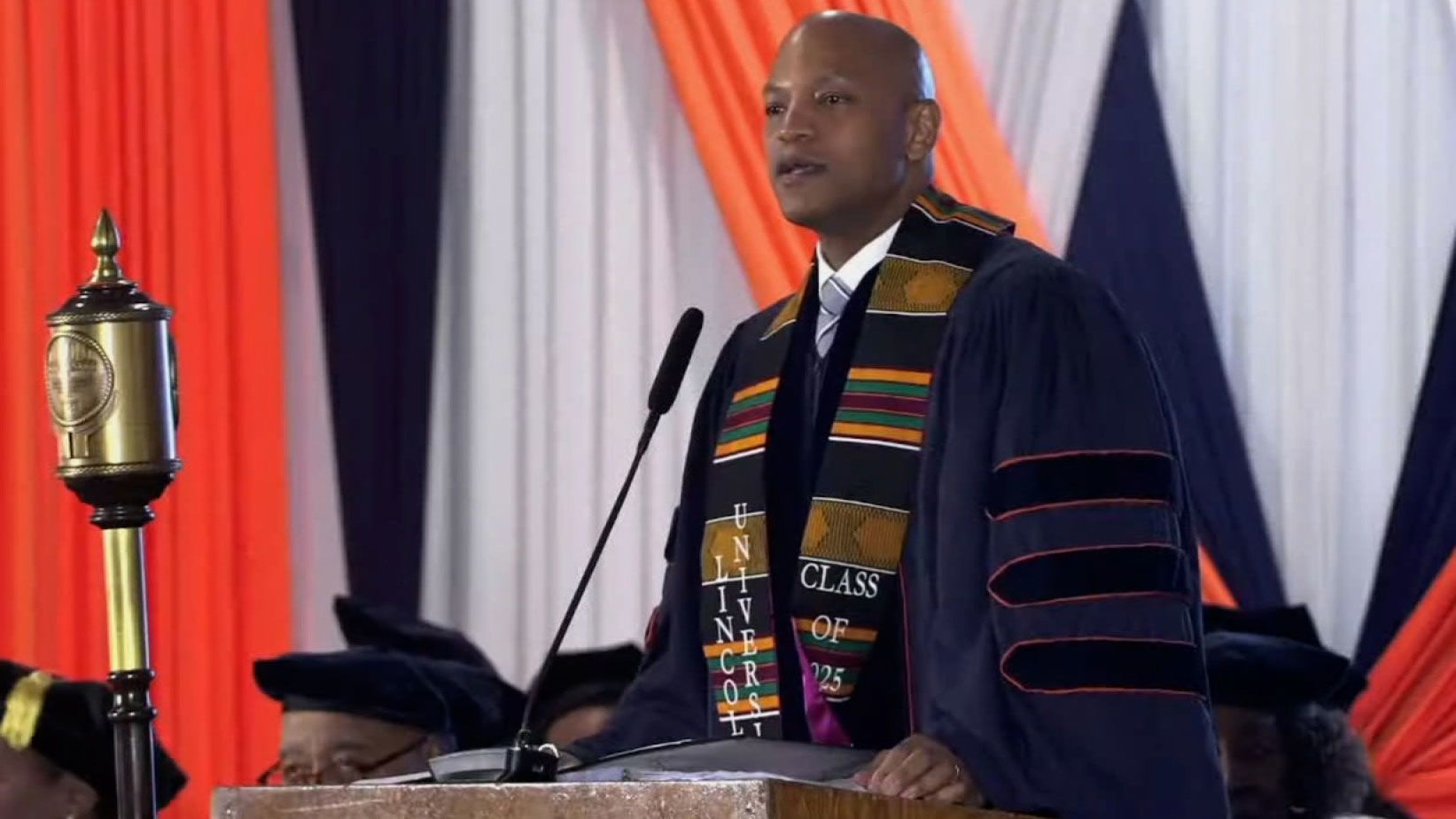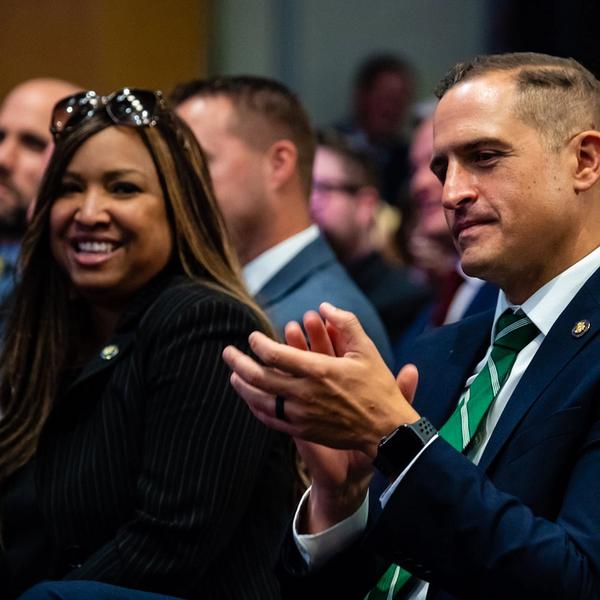- BlackVoter.Org
- Posts
- BlackVoter.Org
BlackVoter.Org

Ohio is facing a staggering loss of over $321.8 million in federal health research funding, primarily due to cuts from the Trump administration.
This decline impacts critical projects spanning LGBTQ youth suicide prevention, tuberculosis vaccine development, and infectious disease reporting systems. Researchers and healthcare professionals warn that these funding cuts threaten jobs in public health and threaten the advancement of medical science.
The cuts also jeopardize the future of young scientists, who may be forced to seek careers outside of research due to diminishing opportunities. Notable projects halted include studies on the immune response to tuberculosis and initiatives aimed at diversifying genomic research.
Experts assert that a stagnant funding landscape could result in a "lost generation" of scientists, stifling innovation and the potential breakthroughs needed to address pressing health issues. Without federal support, the future of medical advancements in Ohio—and potentially nationwide—hangs in the balance.


In a thought-provoking CNN interview, Van Jones spoke with three Black Trump voters from South Carolina who opened up about their continued support for the former president in 2025. This segment highlighted the evolving political landscape within the Black community, as voters like Seth Dawkins, Detra German, and Kyasia Kraft shared their reasons for switching from traditional Democratic alignment to Trump.
They cited practical issues such as economic growth, border security, and a personal connection to law enforcement as decisive factors. While acknowledging contentious Trump actions, they emphasized that their support is driven by tangible concerns rather than symbolic politics.
With polls indicating a notable increase in Black voter support for Trump, these perspectives challenge the notion of monolithic Democratic loyalty and signal a shift towards more diverse political priorities. Their candid insights sparked debate online, illustrating the complexities of Black voter behavior as the 2028 election approaches.

Maryland Governor Wes Moore is quickly becoming a noteworthy figure in the Democratic Party as he navigates a crucial political landscape. Recently seen speaking at Lincoln University, Moore stresses the importance of unity and service among Americans, especially in light of dissatisfaction with current leadership.
With a background as Maryland's first Black governor, he advocates for a “culture of repair” to address the frustrations of voters feeling left behind. His policy initiatives, including raising the minimum wage and increasing taxes on the wealthy, reflect his progressive vision.
In his speeches, Moore calls for a healthier sense of national pride, reminding listeners that loving your country requires an honest reckoning with its history. As he gears up for reelection in Maryland, speculation grows around a potential presidential run in 2028, although he remains focused on leading his state effectively.
The Democratic Party may very well look to Moore as its fresh face moving forward.

In Church Creek, Maryland, the Harriet Tubman Underground Railroad National Historical Park stands as a vital testament to the legacy of the renowned abolitionist. Under the careful supervision of Deanna Mitchell, the park serves as a powerful space for education and reflection, attracting 30,000 visitors annually.
Recent controversies, including the temporary removal of Tubman's biography from the National Park Service website during the Trump administration, have sparked concern about the future of narratives surrounding Black and Native American histories. Historians and activists are raising their voices against efforts to erase these critical stories from public consciousness.
They emphasize the necessity of historical sites that preserve and celebrate diverse contributions to America’s past. As visitors like the Reidy family and Rhonda Miller highlight, these museums not only provide historical insight but also foster a deeper understanding of the struggles faced by figures like Tubman, ensuring that their stories continue to resonate.

Lynne Patton, the highest-ranking Black official in Donald Trump's White House, is set to return after serving a suspension related to a Hatch Act violation during her tenure at the Department of Housing and Urban Development. Patton, who worked as deputy assistant to the president and director of minority outreach, faced scrutiny for using her HUD role for political activity, including filming residents for a video showcased at the Republican National Convention.
The Office of Special Counsel penalized her with a $1,000 fine and a 48-month ban from federal service, a sentence some critics deemed disproportionate, as she was the only Black woman among multiple officials cited for similar infractions. Despite her controversial past, Patton’s return is closely watched as her dual roles resume amid ongoing discussions surrounding the Hatch Act and its enforcement within federal agencies.
Speculation remains about how this will impact her career and the broader political landscape.

In a compelling panel discussion on democracy, former U.S.
Attorney General Eric Holder Jr. and White House Press Secretary Karine Jean-Pierre shared their insights and experiences, drawing on their rich backgrounds in law and public service.
The event, held at Columbia University, captivated attendees as the two alumni emphasized the importance of civic engagement and protecting democratic institutions in today's polarized climate. Holder reflected on the challenges facing democracy, urging the need for robust voter protection, while Jean-Pierre highlighted the role of transparent communication in fostering public trust.
Their dynamic exchange not only inspired students but also underscored the crucial responsibility of individuals in safeguarding democracy. As these two influential figures shared their visions for a healthier political landscape, they left the audience motivated to take action and contribute to the future of democracy.

The fight to preserve historical sites like the Harriet Tubman Visitor Center is more crucial than ever as activists and historians voice concerns over recent governmental attempts to reshape American history. Amidst efforts by the Trump administration to erase elements of the narratives surrounding Black and Indigenous figures, the Harriet Tubman Underground Railroad National Historical Park stands as a beacon of hope, attracting thousands who seek to immerse themselves in Tubman's legacy.
Superintendent Deanna Mitchell emphasizes the importance of engaging visitors with the rich history of the Underground Railroad and the diverse stories intertwined with America’s past. Despite fears of funding cuts due to political pressures, dedicated efforts continue to highlight the experiences of marginalized communities, reminding us that preserving these vital histories is essential for understanding collective identity.
As advocates argue, learning about this history is not just about remembering a painful past—it's about recognizing shared truths that connect us all.